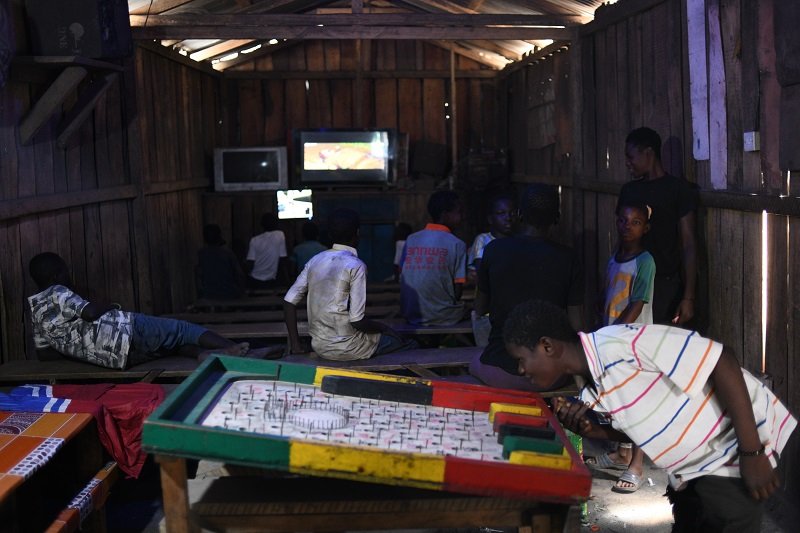Hot!
Children abandon classroom school for game centres

Despite effort by the Gaming Commission to phase out analogue and non-digital slot machines within the gaming landscape in Ghana, it appears the taskforce still has a long way to go.
The ‘clampdown’ initiated on January 1, 2022, formed part of measures by the Comission to upgrade the industry to meet international best practices and protect minors.
However, a number of these children at Alabar in the Kumasi Metropolis in the Ashanti Region and some parts of Accra continue to while away time at gaming centres at the expense of their education.
These children aged between eight and 12 are often seen in makeshift wooden structures in the early hours of the morning playing their favourite video games while others gamble with slot machines.
Mr. Mohammed Kudus, a game centre owner at Alabar, admitted the centre was opened to adults but the children found their way to the place at odd times.
According to him, some of them lived in the slum with single parents who struggled to cater for their basic needs and that some of the parents also tried to prevent their wards from patronising the venue but “they kept coming.”
He said the centre had strict rules of conduct including sacking children who came there in school uniforms.
Madam Beatrice Baiden, Public Affairs Manager of the Gaming Commission, said the proliferation of slot machines and exposure of children to raffles in obscure places were against the law.
She said the Commission would continue to ensure that persons below 18 years were not exposed to gaming, as stipulated in the Gaming Act, 2006 (Act 721) and appealed to the public to report operators who assembled such machines.
Ms Baiden added that the regulator was committed to the development of an industry that supported gaming as a recreational or leisure activity in a responsible manner.
Speaking to Ms. Daniela Ruedisueli Sodjah, one of the founders and the Executive Director of Chance for Children, a Non-Governmental Organisation, commenting on the issue of street children attributed the challenge to weak social support systems.
She, therefore, called on partners and the government to develop strategies to protect vulnerable children and help secure their future.
By Geoffrey Buta